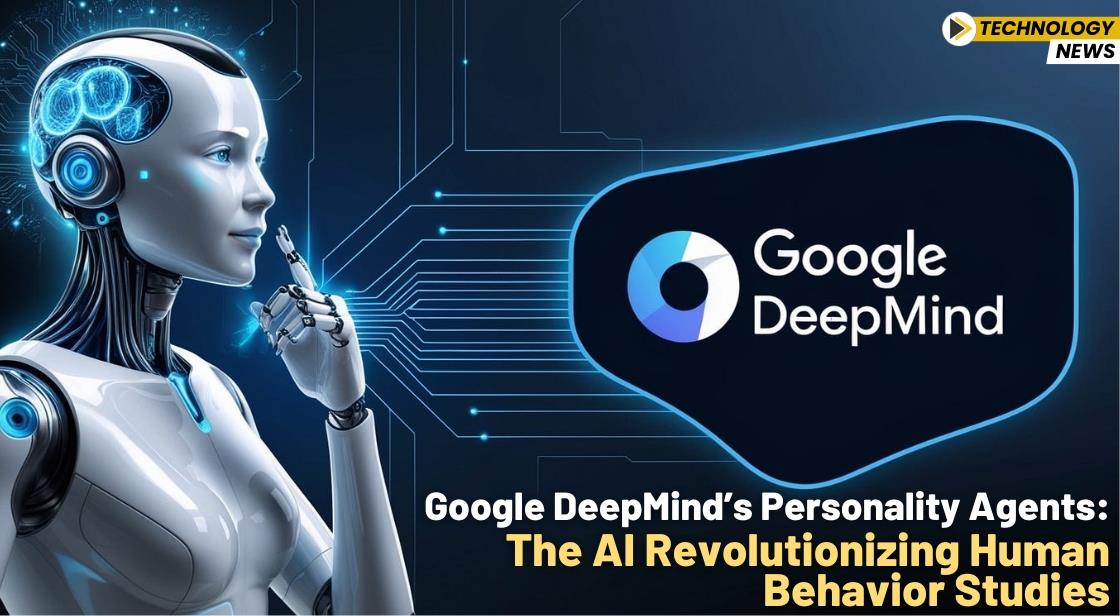Google DeepMind’s Personality Agents: The AI Revolutionizing Human Behavior Studies

News Synopsis
Imagine an artificial intelligence (AI) so advanced it can simulate your personality, decision-making, and thought processes with remarkable precision.
This cutting-edge innovation, developed by researchers at Google DeepMind, in collaboration with sociologists and computer scientists, is called "personality agents." The AI system is designed to create digital personality replicas, achieving an astounding 85% accuracy.
Far from being a concept confined to science fiction, this technology represents a breakthrough in understanding human behavior, with potential applications in social research, personal assistants, and human-robot interaction. However, as exciting as it sounds, it also raises critical ethical and psychological concerns.
How Personality Agents Work?
The process begins with a two-hour interview session where a conversational AI interacts with participants through a simple 2D sprite interface. During this session:
-
The AI captures the participant's speech patterns, preferences, and decision-making tendencies.
-
A personality profile is created, simulating how the individual would think, respond, and act in various scenarios.
This scalable technology has already been tested on 1,000 participants. Unlike traditional sociological surveys that require time-intensive and costly methods, personality agents promise a cost-effective alternative for studying human behavior on a large scale.
Revolutionizing Human Behavior Studies and Beyond
“This is a breakthrough for understanding human behavior on a massive scale,” the research team stated.
The potential applications extend beyond social research:
-
Enhanced Digital Assistants:
AI-generated personalities could lead to hyper-intuitive personal assistants capable of predicting user needs and responding with unparalleled accuracy. -
Advanced Human-Robot Interaction:
Robots equipped with this technology could naturally interpret emotions and social cues, making them more relatable and effective in roles ranging from caregiving to customer service. -
Behavioral Insights for Marketing:
Businesses could use personality agents to test products and strategies by simulating diverse consumer reactions, improving decision-making processes.
Ethical and Psychological Concerns
While the possibilities are exciting, the creation of digital personality replicas raises significant ethical and psychological questions:
-
Consent and Control:
How do individuals ensure their personality replicas are used responsibly and with their full consent? -
Potential Misuse:
The technology could be exploited for targeted advertising, political campaigns, or even misinformation, creating ethical dilemmas. -
Psychological Discomfort:
The knowledge that a digital version of oneself exists, possibly interacting beyond their control, can cause emotional distress.
Experts warn of the potential for manipulation and emotional harm if safeguards are not implemented.
Future Outlook and Challenges
Despite the challenges, Google DeepMind’s personality agents represent a promising step forward in AI development. Researchers have emphasized the need for strict guidelines and transparent policies to prevent misuse. By prioritizing ethics alongside innovation, this technology could revolutionize how humans and machines interact, enhancing productivity, emotional connection, and understanding of human behavior.
“As we integrate AI into our lives, tools like personality agents should focus on empowering individuals and fostering trust,” researchers noted.
Conclusion
Google DeepMind’s personality agents are a testament to the rapidly advancing capabilities of artificial intelligence. From revolutionizing social research to enhancing human-robot interactions, the technology offers immense possibilities. However, its success will depend on addressing ethical concerns and ensuring responsible implementation. As we step closer to a future where the lines between human and machine blur, the need for accountability, transparency, and empathy becomes paramount.
You May Like









